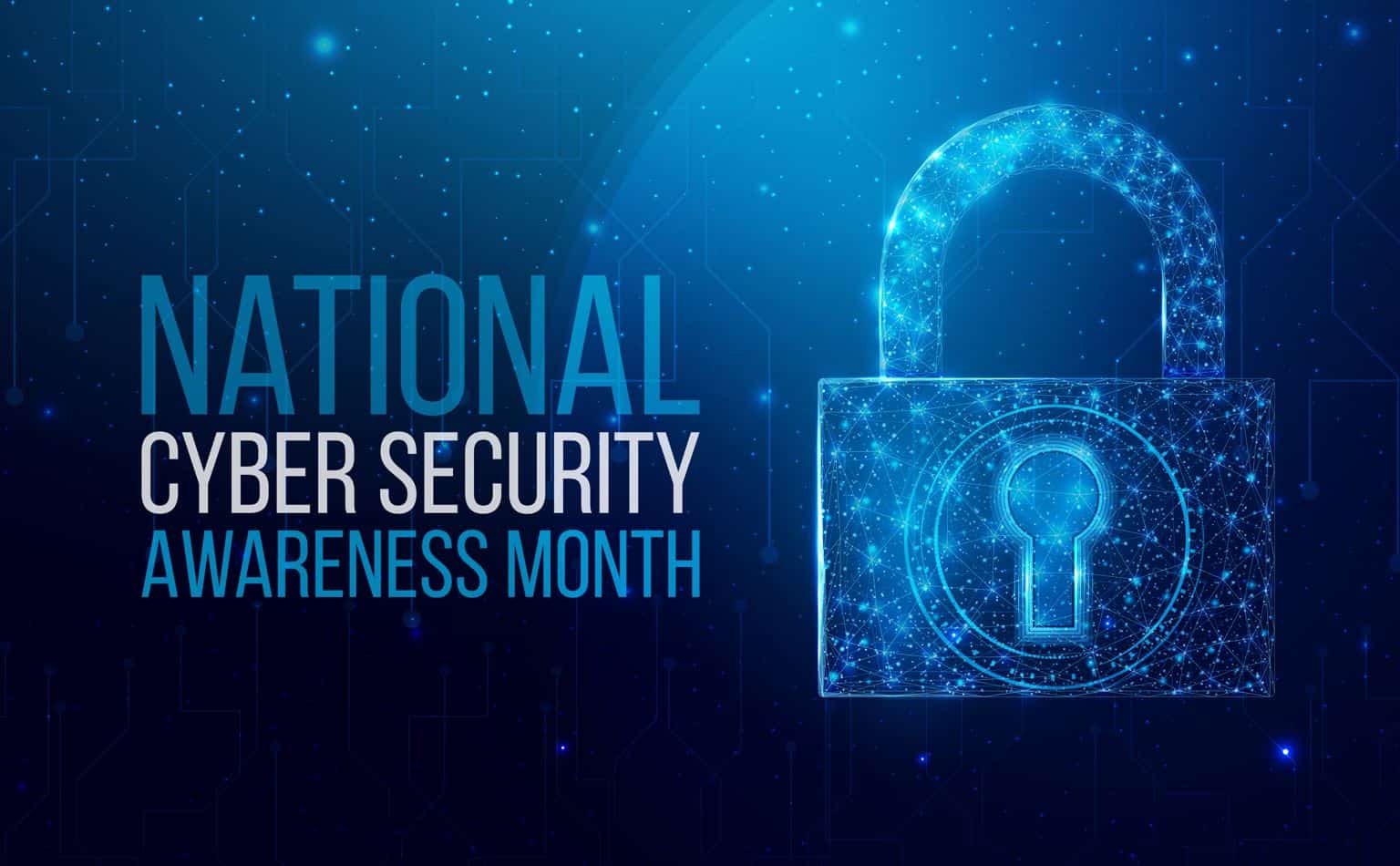Every October, Australia joins the global movement to highlight the importance of online safety through National Cyber Security Awareness Month. In 2025, the theme is all about empowering individuals, businesses, and communities to take proactive steps in protecting their digital lives. With cyber threats becoming more sophisticated each year, staying informed is no longer optional, it’s essential.
Thus, businesses from every industry must work to safeguard their resources and make no compromise on prevention against hackers and scammers. Any delay in ensuring cybersecurity in your company will leave you with great losses, so you must prioritise cybersecurity awareness and training.
What is Cyber Security?
Cybersecurity is the practice of protecting computers, networks, mobile devices, systems, and data from digital attacks, theft, or damage. These attacks, often carried out by hackers or cybercriminals can include stealing sensitive information, spreading viruses, blocking access to systems (ransomware), or tricking people through scams and phishing.
In simple terms, cybersecurity is like a lock and alarm system for your digital world, it keeps your personal information, business data, and online activities safe from cyber threats.
Why Cyber Security Awareness Matters in 2025?
From phishing scams and ransomware attacks to data breaches and identity theft, cybercrime is on the rise. The Australian Cyber Security Centre (ACSC) has reported a steady increase in online threats, affecting not only large businesses but also small companies, students, and everyday internet users. National Cyber Security Awareness Month serves as a timely reminder that everyone has a role to play in staying cyber safe.
What is Cyber Security Awarness Month?
Cybersecurity Awareness Month is an annual global campaign held every October to raise awareness about the importance of protecting ourselves online. It aims to educate individuals, businesses, and communities about common cyber threats (like phishing, scams, and data breaches) and to promote simple, practical steps to stay safe, such as using strong passwords, enabling multi-factor authentication, updating software, and being cautious of suspicious links.
In Australia, this initiative is led by the Australian Cyber Security Centre (ACSC), encouraging everyone, whether at home, school, or work, to take responsibility for their digital safety and build a stronger, more secure online environment.
Theme of Cyber Security Awarness Month 2025
The theme for Cyber Security Awareness Month 2025 in Australia is “Building Our Cyber Safe Culture.”
The theme for this year, “Building Our Cyber Safe Culture,” highlights the importance of making cybersecurity a shared responsibility in Australia. It’s not just about IT teams or tech experts, it’s about everyone adopting safe online practices in their daily lives.
The theme encourages:
- At Work: Businesses to train employees, use stronger security systems, and create a workplace where cyber safety is part of everyday operations.
- At Home: Families to talk about online risks, use secure devices, and protect personal data.
- In the Community: Schools, organisations, and individuals to spread awareness and support one another in building safer online habits.
How Can You Build a Cyber Safe Culture?
Building a cyber safe culture is about creating habits and practices that protect your digital life and encourage others around you to do the same. This Cyber Month 2025, you can take meaningful steps that make a real difference in preventing cyber threats:
Keep your devices up to date
Regularly installing software and app updates helps close vulnerabilities that hackers can exploit. Staying current with updates ensures your devices remain secure against the latest threats.
Use strong, unique passphrases
Every account should have its own strong password or passphrase. Avoid repeating passwords across accounts, as this reduces the risk of a single breach affecting multiple accounts.
Enable multi-factor authentication (MFA)
Adding MFA provides an extra layer of protection. Even if a password is compromised, MFA helps prevent unauthorised access to your accounts.
What are cybersecurity threates you need to be aware?
In today’s digital world, cyber threats are becoming increasingly sophisticated, and everyone, from individuals to large organisations, can be affected. Being aware of these threats is the first step toward protecting your data and devices. Some of the most common cybersecurity threats include:
1. Phishing Attacks
Phishing involves fraudulent emails, messages, or websites that trick you into revealing sensitive information such as passwords, credit card numbers, or personal data. These attacks often appear genuine and can be highly convincing.
2. Ransomware
Ransomware is malicious software that locks your files or devices until you pay a ransom. It can target individuals, businesses, or critical infrastructure, causing significant financial and data loss.
3. Malware
Malware is a general term for harmful software designed to damage or exploit systems. It includes viruses, spyware, and trojans that can steal information, monitor activities, or corrupt files.
4. AI‑Powered Cyber Attacks
AI and machine learning are being used by attackers to make attacks faster, smarter, and harder to spot. Examples include AI‑generated phishing emails that mimic a person’s writing style, deepfake audio/video to impersonate leaders or relatives, automated malware that adapts to avoid detection, and tools that sift through leaked data to find high‑value targets.
5. Identity Theft
Cybercriminals can steal personal information like social security numbers, bank details, or login credentials to commit fraud, make unauthorised transactions, or access accounts illegally.
6. Data Breaches
Data breaches occur when hackers gain unauthorised access to databases, exposing sensitive information such as customer data, passwords, or financial records.
7. Social Engineering
This involves manipulating individuals into divulging confidential information, often by exploiting human psychology rather than technical vulnerabilities.
8. Denial-of-Service (DoS) Attacks
DoS attacks overwhelm a website or online service with traffic, making it unavailable to users. These attacks can disrupt business operations or critical services.
Why is it important to provide cyber security awareness training for employees?
Cybersecurity threats not only make a company lose important documents and data but they eventually contribute to fading the brand reputation and soaring financial losses. To avoid this, educating and training employees about cybersecurity is necessary.
Moreover, cybersecurity awareness training is used by both small businesses and large enterprises to reduce the risk of human errors leading to data breaches. This training is primarily intended to help businesses recognise cyber threats, avoid potentially harmful actions, and take necessary steps to protect their company.
Physical security for company devices, identifying suspicious emails, ransomware, network security, etc. are some examples of cybersecurity awareness training topics.
With these cybersecurity awareness training programs, companies can teach employees to understand vulnerabilities and threats to business operations, recognise major cyber threats and follow all the measures to ensure strong computer security.
In addition, employees must understand their responsibilities and accountabilities when using a computer on a business network. Newly hired employees must also be trained in cybersecurity to instil the organisation’s data security culture. You can look for government-recommended cybersecurity awareness resources such as digital posters and guidance materials to help them know more about cybersecurity.
Also Read: What are the difference between IT security and cybersecurity?
Is There Any Cyber Security Awareness Training?
Yes, there are many. Among them, the Australian government-recognised training is BSBSS00094. BSBSS00094(Cyber Security Awareness Skill Set) offers skills and knowledge to assist an organisation in improving cyber threat awareness and protecting against cyber risk across a broad range of industries. The units credit you to qualifications in the BSB Business Services Training Packages.
BSBSS00094 skill set contributes to the majority of Certificate IV level government generalist and specialist qualifications.
Skill Set Requirements for BSBSS00094 include:
- BSBXCS301-Protect own personal online profile from cyber security threats
- BSBXCS302- Identify and report online security threats.
- BSBXCS303-Securely manage personally identifiable information and workplace information
- BSBXCS402-Promote workplace cyber security awareness and best practices
Those working in a broad range of industries and having a role in engaging in cyber security threat assessments and protection against cyber security risk can be the best candidates for this training.
In fact, many Australian educational and IT institutions also provide cybersecurity awareness training and workshops (in accordance with ACSC and Australian government guidelines) that include a variety of cyber-safe practical activities and demonstrations relevant to an organisation’s environment. These organisations tailor their cybersecurity awareness program to the needs of the business and employees.
You may also like: How Much Do Cybersecurity Services Cost in Australia?
NSW IT Support’s CyberSecurity Services
As a leading IT Support company in Australia, we understand how important it is to protect sensitive information and focus on security controls, backup, and healthy online practices. We believe that to have strong national cybersecurity in Australia, small, big or medium-scale- every business must work for safer practices and follow the guidelines of the Australian Cyber Security Centre (ACSC).
Talking about our cybersecurity services, we have next-generation Anti-Virus and Anti-Malware Protection to continuously monitor and protect your business. NSWIT Support has a committed team and advanced tools to run vulnerability scans, investigate, provide root cause analysis, begin rapid service recovery, keep your systems tuned to peak performance and resolve issues.
All in all, we offer 24×7 monitoring of your networks, endpoints, and cloud environments to help you detect, respond and recover from cyber threats. In addition, we are experts in backup systems management and disaster recovery planning as we have strong Backup and Disaster Recovery (BDR) System Administration. Further, our clients are provided with monthly reports to measure our cybersecurity performance and plan for your future IT and cybersecurity needs.
So, if you are looking for a great IT Support company that provides overall IT Support service, including cybersecurity, then you can contact us.










